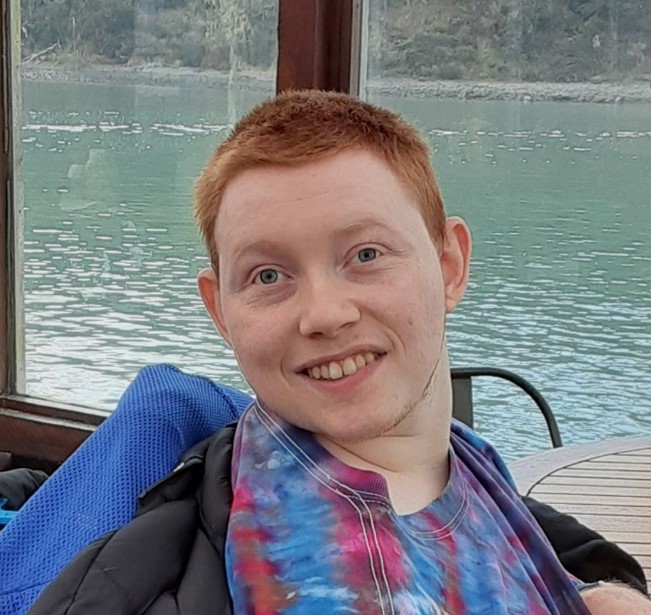
Dave Manson: March is, as you know, Developmental Disabilities Awareness Month, and here at CPCIDD, we see it as an opportunity for many people to learn for the first time what a developmental disability is. I found a definition online that I like and I want to share it with you first and then get your thoughts on this.
It says, “Developmental disability is the broad term used to describe a range of conditions that affect physical and/or mental functioning. For a condition to be considered a developmental disability, the manifestations or symptoms of the condition must be present in childhood and expected to be present for life.
Most developmental disabilities are present at birth and may be identified early in life, although some developmental conditions may not be recognized until after age three. A variety of conditions are classified as developmental disabilities. Among the most common are intellectual disability, autism spectrum disorder, down syndrome, and cerebral palsy.” Tell me what you think of that definition, what you might add to it, take away from it, what you might want to layer on top of it to give it nuance. What’s your reaction to that definition?
Sean Spence: The only thing I would slightly change is that you can get a diagnosis for a developmental disability later in life as well.
Dave Manson: Okay.
Dave Manson: Understood. Now tell me, Sean, why is it important to raise awareness about developmental disabilities? Why is it important that as many people as we can get to understand this topic as possible, is important? Why is that an important thing?
Sean Spence: It’s important because as people in the IDD community, we have skills and we have abilities that we can offer, but we can’t put those skills and abilities on the table to show what we can do if peoples’ perception of those abilities are based on lack of awareness or judgment.
Dave Manson: That is a powerful answer and I love it. That actually leads right into my next question. What are some misunderstandings or misconceptions that people might have about developmental disabilities and do you have any specific examples from your own life?
Sean Spence: From my own life, it was just the constant misconception of the lack of mental acuity that a person with IDD would have. I faced discrimination each and every day in my life throughout my academic career, even though I maintained a 4.0.
Dave Manson: You maintained a 4.0 and also earned a master’s degree, correct?
Sean Spence: No, I earned my bachelor’s degree. I’m going back for my master’s degree.
Dave Manson: Got it. Okay.
Dave Manson: What are some other common misunderstandings or misconceptions that people might have that we might want to take this opportunity to help dispel, to help clear up?
Sean Spence: That we can’t communicate, that we’re too different to contribute something.
We’re not too different to contribute something as long as you take the time to be able to learn what works and what doesn’t work for us and for other people. It’s the same as if somebody was trying to organize a whole group of diverse people in a group setting, each speaking a different language. Unless you have the specific skills to be able to communicate with everybody, it’s going to be the same problem whether someone has an IDD or not.
Dave Manson: Thank you for that compelling insight! On a personal note, Sean, is there anything that you want people to know about you and your own diagnosis?
Sean Spence: The only thing I want people to know about me specifically is that if you give me a job to do that’s within my ability, I will go above and beyond to accomplish the task one hundred percent of the time without fail.
Dave Manson: Sean, I absolutely love your response. This is one of the reasons I’m excited about and looking forward to working with you! I just have one last question and then we’ll dive into a little brief conversation. What are some ways that people can be good allies and advocates for those who may have a developmental disability? Even if they don’t have a family member, how can people be good allies and advocates for those that have developmental disabilities?
Sean Spence: One thing I would strongly recommend is that you don’t see the person as having an IDD or a disability as your baseline for who they are. Treat them as a “normal” person with accommodations based on their needs, of course. But if you treat them like a normal person and adapt to the needs and adapt to the situation, that’s the best thing you can do to be an advocate, to be an assistant.
Dave Manson: Excellent. When you’re thinking about Developmental Disability Awareness Month, is there anything else that you want the public to know or you want included in this interview as part of our newsletter? You’ve given us so much good stuff already, but I’m wondering, is there anything else on your mind that you want to add to this conversation?
Sean Spence: I would just say, if you are the type of person that is comfortable with putting aside the misconceptions and jumping off that predisposed cliff and giving us a shot, the IDD community might just surprise you.
Dave Manson: Perfect. Sean, I appreciate you!
Sean Spence: Thank you, Dave.
Dave Manson: Thank you!

